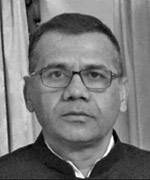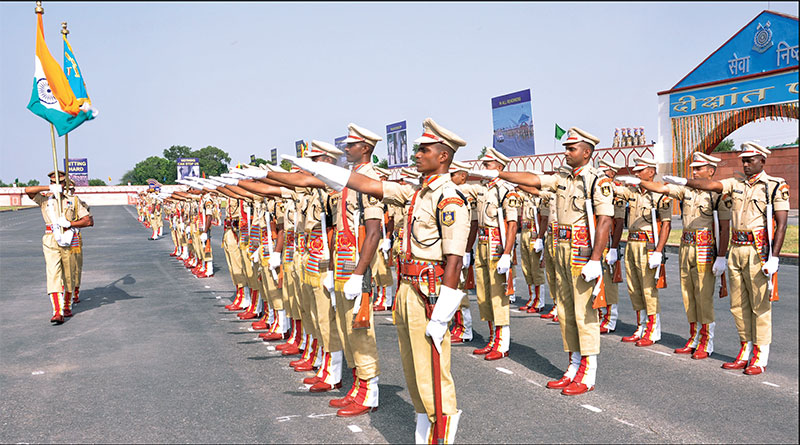CAPFs have to be led by effective leaders who are insiders, and not outsiders
 R.C. Sharma
R.C. Sharma
What is the function of leadership in a hierarchical organisation like the Border Security Force (BSF), Central Reserve Police Force (CRPF), Indo-Tibetan Border Police (ITBP), Sashastra Seema Bal (SSB) and Central Industrial Security Force (CISF)? The leadership function is to command men in such a way to obtain their willing obedience, confidence, respect and loyal cooperation in order to accomplish the task and mission. However, to obtain their respect and willing cooperation, the leadership has to be regimented, born and brought up in the organisational environment to understand difficulties of men on ground, their desires, needs and expectations from the leadership. The hierarchy has to be born, groomed, trained and brought up in a manner that it grows with men it has to command. The leadership should not be imposed/ para-dropped. Such leadership creates confusion and dilemma in the minds of men who are the cutting edge to accomplish assigned role and task.
Considering the above, let us analyse the status of leadership in Central Armed Police Forces (CAPFs). All CAPFs have a dual system of leadership:
- Regimented Leadership
- Imposed/Para-dropped Leadership
Troops are commanded by regimented leadership. Regimented leadership understands force ethos, culture, difficulties and frustrations of men since both swim and sink together. Both have their loyalty vested in the unit, regiment and nation and both work for organisational and national good. It is the Herculean efforts of this leadership that our national borders are safe, secure and their sanctity intact. People in the border areas trust them. Regimented leadership has ensured that internal peace is maintained despite democratic aberrations of underdevelopment, discrimination and regional imbalances.
The second type of leadership is para-dropped. It comprises mainly Indian Police Service (IPS) officers who join CAPFs after putting in about 15-17 years of service in state police. They come on deputation in the rank of deputy inspector general (DIG), inspector general (IG), Additional Director General (ADG), and Director General (DG). This leadership is disconnected from following:
- Force ethos, culture and regimentation
- Force Training
- Force Administration
- Operations
- Genuine Welfare of Men
They are born and trained in police ethos and culture in National Police Academy. After training they are allotted state cadres which have their own culture, which is afflicted by political interference, corruption, poor/ no training, no operations/failed operations and no trust in them of public etc. Various surveys have put police at the bottom of the ladder in public trust and confidence.
Para-dropped Leadership
Police officers when para-dropped in the BSF, CRPF, ITBP, CRPF and CISF create havoc with functioning of regimented leadership. Men face the dilemma. Men work with their company commanders, and commandant through chain of command. They execute all orders passed through regimented leadership. Orders of para-dropped leadership, logical or illogical, are implemented through them. Men lose trust in the regimented leadership, as they feel that illogical orders are issued by company commander/ commandant, whereas truth is something else. They do not know that invisible leadership is responsible for such orders. Regimented leadership loses confidence of troops. Negative image of regimented leadership is projected to the government by the para-dropped leadership since they are eyes and ears of the government.

Let me quote some examples how para-dropped leadership has shaken the very basis of discipline, operational effectiveness, regimented ethos and culture of the CAPFs.
- In 2006, an IG BSF played with the basic operational and administrative structure of whole frontier of the force. He was from the cadre of a South Indian state and his wife was from the state he was posted in. Consequently, his wife used to do the following activities which are illegal under law:
(i) Carry out inspection of units during his visit, not of family welfare centre, but of Jawan Lines, ration stores, Unit messes etc
(ii) Check cashbooks
(iii) Visit quarter guard and order release of prisoners undergoing imprisonment. Such orders used to be regularised later
(iv) The IG himself used to order release of prisoners. In one such case, the DIG had to intervene to stop such action.
- Their operational decisions added to confusion and discontent among troops. Such decisions are routine and not exception. Cadre leadership was blamed by troops though truth was something else. After commandants’ conference in Frontier HQ, there was discussion and genuine worry that training is a casualty due to continuous deployment on internal security duties. The IG took a decision to have battalion collective training instead of company collective training. Orders were passed for training of one border deployed battalion to be replaced by an ad hoc battalion. Companies were mobilised. However, when some companies were halfway through to their new locations, the order was withdrawn. The troops felt that:
- It was the unprofessional approach of cadre leadership though orders were not theirs
- Unnecessary fatigue, both physical and mental to troops
- Gaping holes in border deployment, which incidentally is happening even now
This approach leads to dissatisfaction, indiscipline, insubordination and low morale. Two incidents will suffice. One, a young jawan tried to kill himself using personal weapon. An alert colleague saved him. He was counselled and given less responsibilities so that he can de-stress. Meanwhile, the name of the jawan who saved the life was sent for reward. As the file came to the corresponding IG, he enquired about the jawan who attempted suicide. When informed of his presence at his headquarter, he ordered him to be immediately sent back fearing similar action by him there. Two, in a highly sensitive operational area, a handful of troops indulged in collective insubordination. The leadership at the top level tried every trick to save the undisciplined without caring for the discipline of force.
The Way Out
The need of hour is to allow CAPF cadre to effectively get involved in planning, development of CAPFs at both execution and conceptual level. That can only happen when deputationists are sent back to their states to look after police functioning. The day is not far when CAPFs will fall to the operational level of police/ home guards if corrective revolutionary measures are not taken.
(The writer is retired commandant, Border Security Force)

